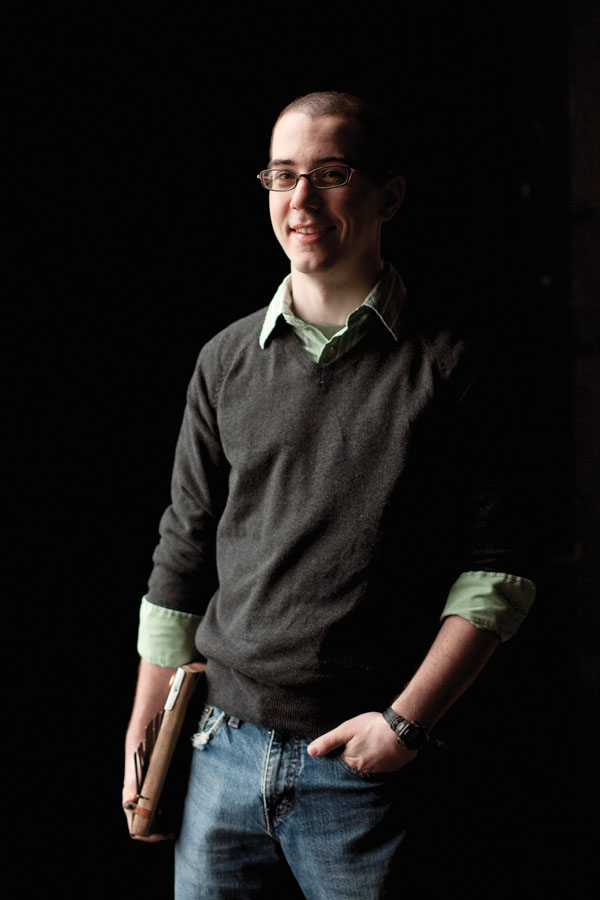Features
Nicholas Hamlin
Ipswich, Mass.Majors: Mechanical Engineering and History
 (Photo: Adam Fenster)
(Photo: Adam Fenster)
When Nicholas Hamlin was a high school student looking at colleges, the ease of coordinating two fields of study was a “major factor” in his ultimate decision to attend Rochester.
Before even beginning college, he’d already developed some prowess at historical research: He and a team of fellow students won the National History Day Contest, a historical research competition entered by more than half a million high school students each year, for a documentary they made on the ice industry in 19th-century New England.
But he also relished the challenges of engineering—and he didn’t want to abandon the study of either one. Rochester, he says, made it not just feasible but comparatively simple to pursue both.
“It was much easier than I thought it would have been” to accommodate both majors in his schedule, he says.
“Being a mechanical engineer has made me a better historian, and being a historian has made me a better mechanical engineer,” he says. In both cases, you’re trying to solve a problem.
Doing both has led me to approach problems in a slightly different way than the major alone would have led me to do—and I think that’s beneficial.”
Hamlin continued to broaden his perspective during his just-completed Take Five year. He examined ethnomusicology, with courses in anthropology, linguistics, and music. Music, he says, is another long-held interest for him, and he was a member of the Midnight Ramblers, directing the group for two years.
“The Midnight Ramblers has been an important part of my education.” He credits his participation with teaching him “leadership, and all sorts of random things you wouldn’t necessarily think would be associated with a music group,” from tour management to music technology to accounting.
Now Hamlin is considering graduate school, perhaps with an eye toward a career in international development, something he says could bring his love of engineering and history together. He’s one of the students who established the new chapter of Engineers without Borders at the University.
He’s cautious about being overly focused on any one goal, however; following his instincts has worked well for him so far.
“Most of the things I decided to do here at Rochester weren’t intentional,” he says.
“I just thought they were cool.”

